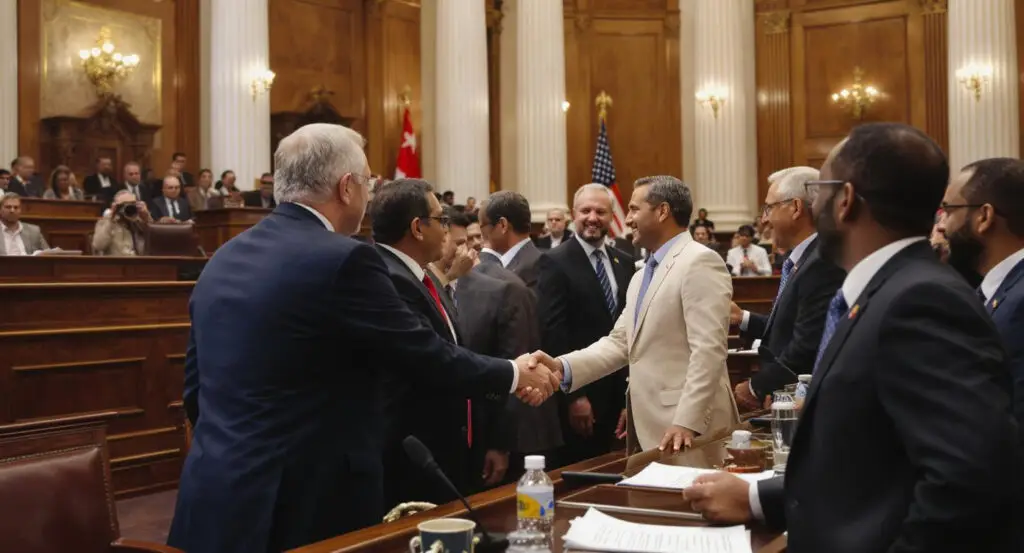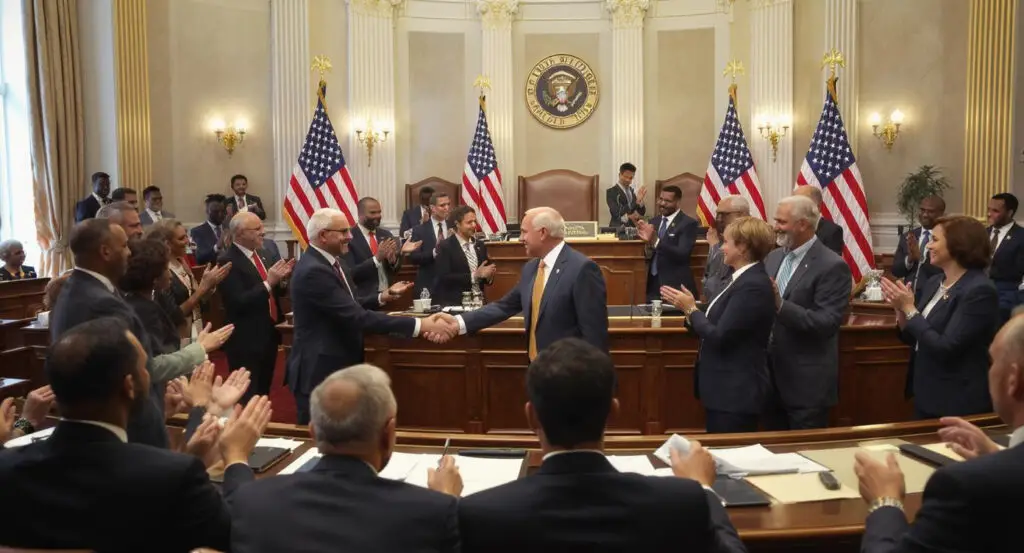WASHINGTON – The GOP-led House of Representatives finally advanced a trio of cryptocurrency bills to the floor for debate and consideration late Wednesday night, July 16, 2025, after a record-breaking nine-hour stalemate. The 217-212 vote marked a significant step forward for President Donald Trump’s “America First” crypto agenda, which had faced unexpected internal Republican opposition for days.
Unprecedented Delay and Resolution
The procedural vote to bring the crypto bills to the floor was stalled for over nine hours, setting a new record for the longest House vote in recent history. The previous record was set earlier this month during the rule vote for President Trump’s “megabill.” For much of Wednesday, the House was gridlocked as a bloc of nine Republicans voted no and two others withheld their vote, preventing the legislation from advancing.
The breakthrough came after intense negotiations. House Speaker Mike Johnson huddled with the holdouts in his office, and ultimately, a deal was struck. A key concession was the assurance that one of the measures—the “Anti-Central Bank Digital Currency Surveillance State Act,” aimed at preventing the Federal Reserve from issuing a CBDC—would be attached to the must-pass National Defense Authorization Act (NDAA). House GOP Whip Tom Emmer celebrated this agreement on X, stating it “will ensure unelected bureaucrats are NEVER allowed to trade Americans’ financial privacy for a CCP-style surveillance tool.”
Following this agreement, only a single Republican member, Rep. Marjorie Taylor Greene of Georgia, continued to vote against advancing the rule. Speaker Johnson confirmed he had spoken with President Trump, who considered the passage a “big priority.”
Advancing Key Crypto Legislation
With the procedural hurdle cleared, the House was poised to vote on the substantive crypto bills. While the article text specifically states the House “finally advanced a trio of crypto bills to the floor for debate and consideration by a vote of 217-212,” other sources confirm that the House indeed passed the following bills on Thursday, July 17:
- The GENIUS Act (Guiding and Establishing National Innovation for U.S. Stablecoins Act): This bill, which had already passed the Senate, is expected to go directly to President Trump for his signature to become law. It aims to regulate stablecoins, which are cryptocurrencies pegged to stable assets like the U.S. dollar.
- The CLARITY Act (Digital Asset Market Clarity Act): This broader crypto market structure bill is designed to clarify regulatory oversight for digital assets, divvying up authority between the SEC and CFTC. Speaker Johnson indicated that the vote on this bill might be pushed to early next week, but it was subsequently passed on Thursday.
- The Anti-Central Bank Digital Currency Surveillance State Act: This bill, which aims to prevent the Federal Reserve from creating a central bank digital currency (CBDC), was the subject of the Republican holdouts’ primary concern and the reason for the record-breaking stalemate. It was also passed.
President Trump had previously claimed to have reached a deal with GOP holdouts on Tuesday, which reportedly included strengthening anti-CBDC provisions in the CLARITY Act. This internal party dispute and its eventual resolution highlight President Trump’s firm grip over the Republican conference and his commitment to his administration’s crypto agenda, which he has called a “very powerful industry” that the U.S. has “dominated.”























